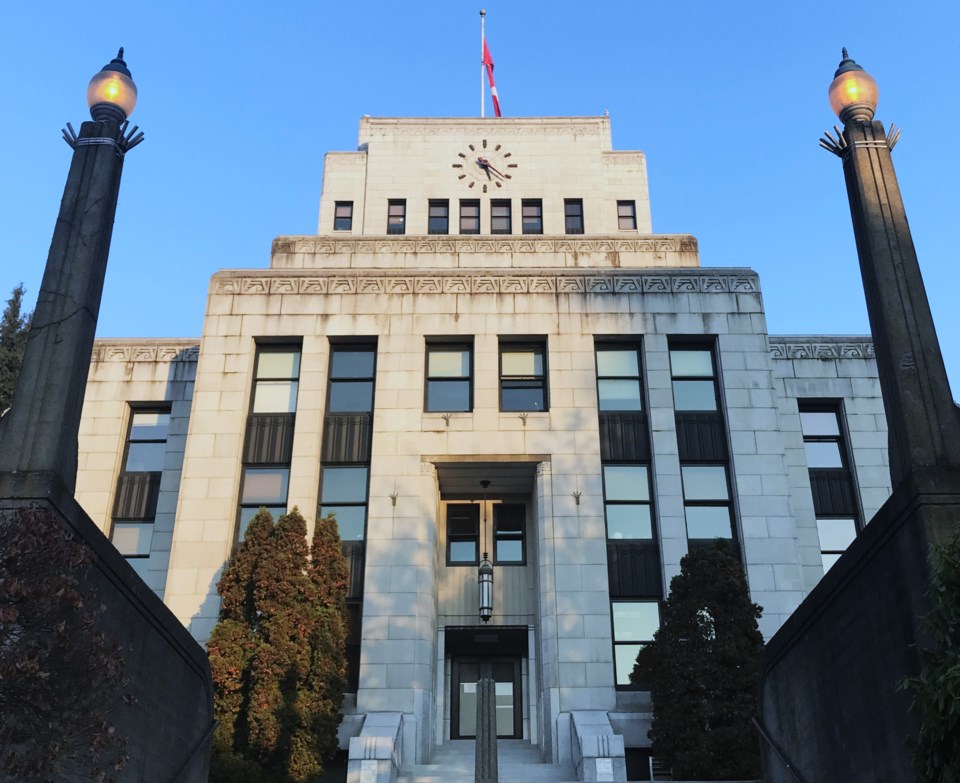Rules, regulations and bylaws are essential for a city.
Like other laws, local rules and regulations keep a city in order; for the most part these are common sense things that are codified, but rarely checked on. Most people probably haven't read any of Vancouver's bylaws.
However, there can be some quirky ones. For example, Vancouver had a decades long ban on selling stoves on Wednesdays.
These days there are lots, and some might surprise. Like how you're not allowed to wash your car on the street. And others aren't followed too closely, like how bikes aren't allowed on the street unless they have a bell or drivers aren't supposed to stick their hand out of the window of their car.
And there are some gaps. Cats are apparently allowed to meow as loud as they want, while all other animals are regulated.
And then there's the opposite of gaps. In city parks you're not allowed to "ride or drive any horse or other animal" "without reasonable consideration of other persons using the public park." The wording covers the city legally, but also covers riding ostriches, tigers and bears, or hooking up a team of mice into a complex harness like sled dogs.
So here are five rules, regulations and bylaws you might not realize you're supposed to follow.
1. You're not allowed to jump off a city wharf
Private wharfs are a different thing, but the municipality is quite clear when it comes to the ones owned by the city.
In the aptly named "City Wharf By-law" in the section under "Public conduct" it says people must not "jump off of a City wharf."
A note for smokers, you're also not allowed to smoke while on a vessel moored at a city wharf.
2. You can only spit where you're supposed to
In the city's health bylaw there are only a few health regulations, and the first one has to do with bodily functions and the banning thereof.
"A person must not expectorate, urinate, or defecate on or in any street or other public place, except in a location in a public building or facility provided specifically for such purpose," reads section 2.1.
Urination and defecation are terms most know, but expectorate is less common. It covers spitting, hawking or things like that.
Which essentially means in Vancouver spitting (among other things) isn't allowed except in a spot provided specifically for spitting.
3. It's your duty to cross on the right hand side
In a section of the street and traffic bylaw are the "pedestrian's rights and duties."
Among those rights and duties is one defining which half of the crosswalk you're supposed to use.
"Pedestrians shall move, whenever practicable, upon the right half of crosswalks," reads the rule.
4. No doorknobs for door opening hardware
Doorknobs are essentially banned.
A few years ago the city updated language in its building code. While the term doorknob isn't specifically included, the rules that door opening hardware must not require a tight grasp or twisting of the wrist."
In fact, taps that would require a tight grip and twisting (in a dwelling setting) aren't allowed either.
The explanation is that rounded doorknobs can be difficult to use for people with arthritis or difficulties turning their wrists. A door handle is much easier.
5. The city defines family and how that affects four unrelated roommates
The city's zoning bylaws define everything from decorative roof to sex object, including what a family is.
A family is defined as either "one or more individuals all related to one another by blood, marriage or adoption" or "as a maximum of 3 unrelated individuals living together as a household."
It may sound odd to define "family" as three unrelated folks, but it matters when it comes to roommates sharing a house and a house is only allowed to have one family in it.
This comes into play in dwelling uses, where the zoning bylaws in part state "no dwelling unit may be used or occupied by more than 1 family," though it goes on to note that in addition to the family two boarders or lodgers are allowed.



